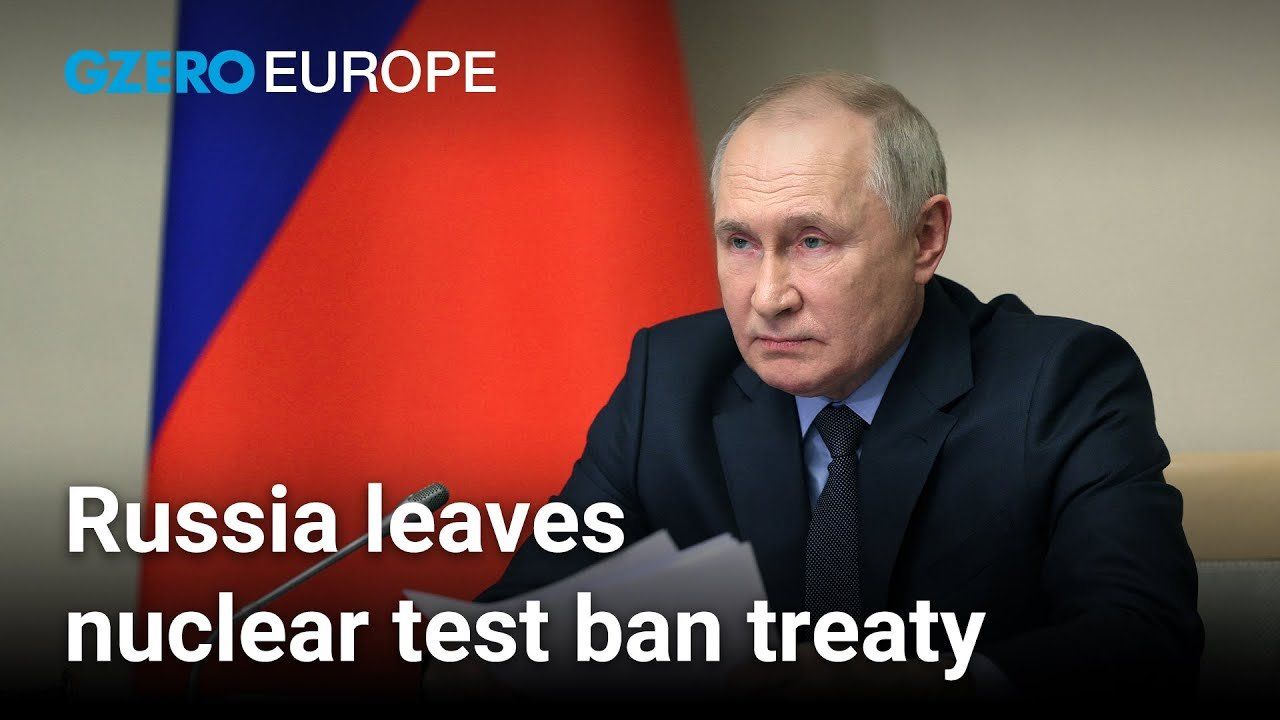GZERO Europe
Russia leaves nuclear test ban treaty in show of public posturing

Russia leaves nuclear test ban treaty in show of public posturing | Europe In :60 | GZERO Media

Carl Bildt, former prime minister of Sweden, shares his perspective on European politics from Stockholm.
What can be done by Europe or others to help the 1.7 million Afghan refugees that are now being expelled from Pakistan back into Afghanistan?
Well, sorry to say the answer is not very much can be done. We are delivering humanitarian aid to some extent, and the UN is there to Afghanistan, but to take care of or to help substantially 1.7 million people that are expelled from Pakistan is going to be very difficult. Relationship with the Taliban regime is virtually non-existent, so it's one of these tragedies that are happening at the same time as we have the Gaza War and the Ukraine War.
Does Europe feel less secure now that Russia has revoked its ratification of the test ban treaty?
Well, not really changing very much. What the Russians are doing is that they're doing, to the same situation as the Americans have, because the US hasn't ratified the CTBT either, but they adhere to it, and that is just as well. So, the Russians decided, and I think it's a signaling effect to some extent, that nuclear weapons are there and that they, at some point in time, might presume nuclear testing. But until they do that, and I hope they don't, it doesn't mean very much, but it shows that they are sort of playing around with nuclear weapons and with public posturing with nuclear weapons, which of course is less than good.
People in support of former South Korean President Yoon Suk Yeol rally near Seoul Central District Court in Seoul on Feb. 19, 2026. The court sentenced him to life imprisonment the same day for leading an insurrection with his short-lived declaration of martial law in December 2024.
65: The age of former South Korean President Yoon Suk Yeol, who was sentenced to life in prison on Thursday after being found guilty of plotting an insurrection when he declared martial law in 2024.
In an era when geopolitics can feel overwhelming and remote, sometimes the best messengers are made of felt and foam.
The Hungarian election is off to the races, and nationalist Prime Minister Viktor Orbán is facing his most serious challenger in 16 years.
Does skepticism rule the day in politics? Public opinion data collected as part of the Munich Security Conference’s annual report found that large shares of respondents in G7 and several BRICS countries believed their governments’ policies would leave future generations worse off.